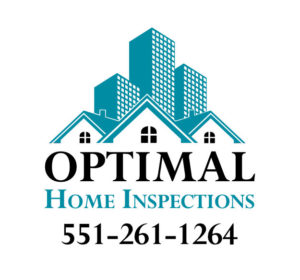The winter holidays are a time for celebration, which means more cooking, home decorating, entertaining, and an increased risk of fire and accidents. InterNACHI recommends that you follow these guidelines to help make your holiday season safer and more enjoyable.
Holiday Lighting
- Please be careful with holiday decorations and, whenever possible, choose those made with flame-resistant, flame-retardant, and non-combustible materials.
- Keep candles away from decorations and other combustible materials, and do not use candles to decorate Christmas trees.
- Carefully inspect new and previously used light strings, and replace damaged items before plugging lights in. If you have any questions about electrical safety, ask an InterNACHI inspector during your next scheduled inspection. Do not overload extension cords.
- Don’t mount lights in any way that can damage the cord’s wire insulation. To hold lights in place, string them through hooks or insulated staples–don’t use nails or tacks. Never pull or tug lights to remove them.
- Keep children and pets away from light strings and electrical decorations.
- Never use electric lights on a metallic tree. The tree can become charged with electricity from faulty lights, and a person touching a branch could be electrocuted.
- Before using lights outdoors, check labels to be sure they have been certified for outdoor use. Ensure all the bulbs work and that there are no frayed wires, broken sockets, or loose connections.
- Plug all outdoor electric decorations into circuits with ground-fault circuit interrupters to avoid potential shocks.
- Turn off all lights when you go to bed or leave the house. The lights could short out and start a fire.
Decorations
- Use only non-combustible and flame-resistant materials to trim a tree.
- Choose tinsel and artificial icicles of plastic and non-leaded metals.
- Never use lighted candles on a tree or near other evergreens. Always use non-flammable holders, and place candles where they will not be knocked down.
- In homes with small children, take special care to avoid decorations that are sharp and breakable, and keep trimmings with small removable parts out of the reach of children
- Avoid trimmings that resemble candy and food that may tempt a young child to put them in his mouth.
Holiday Entertaining
- Unattended cooking is the leading cause of home fires in the U.S. When cooking for holiday visitors, remember to keep an eye on the range.
- Provide plenty of large, deep ashtrays, and check them frequently.
- Cigarette butts can smolder in the trash and cause a fire, so completely douse cigarette butts with water before discarding them.
- Keep matches and lighters up high, out of sight and reach of children (preferably in a locked cabinet). Test your smoke alarms, and let guests know what your fire escape plan is.
Trees
- When purchasing an artificial tree, look for the label “fire-resistant.”
- When purchasing a live tree, check for freshness. A fresh tree is green, needles are hard to pull from branches, and when bent between your fingers, needles do not break.
- When setting up a tree at home, place it away from fireplaces, radiators and portable heaters. Place the tree out of the way of traffic and do not block doorways.
- Cut a few inches off the trunk of your tree to expose the fresh wood. This allows for better water absorption and will help to keep your tree from drying out and becoming a fire hazard.
- Be sure to keep the stand filled with water, because heated rooms can dry live trees out rapidly. Make sure the base is steady so the tree won’t tip over easily.
Fireplaces
- Before lighting any fire, remove all greens, boughs, papers, and other decorations from the fireplace area. Check to see that the flue is open.
- Use care with “fire salts,” which produce colored flames when thrown on wood fires. They contain heavy metals that can cause intense gastrointestinal irritation and vomiting if eaten.
- Do not burn wrapping papers in the fireplace. A flash fire may result as wrappings ignite suddenly and burn intensely.
Toys and Ornaments
- Purchase appropriate toys for the appropriate age. Some toys designed for older children might be dangerous for younger children.
- Electric toys should be UL/FM approved.
- Toys with sharp points, sharp edges, strings, cords, and parts small enough to be swallowed should not be given to small children.
- Place older ornaments and decorations that might be painted with lead paint out of the reach of small children and pets.
Children and Pets
- Poinsettias are known to be poisonous to humans and animals, so keep them well out of reach, or avoid having them.
- Keep decorations at least 6 inches above the child’s curious child or pet may eat it. This can cause anything from mild distress to death.
- Keep any ribbons on gifts and tree ornaments shorter than 7 inches. A child could wrap a longer strand of ribbon around their neck and choke.
- Avoid mittens with strings for children. The string can get tangled around the child’s neck and cause them to choke. It is easier to replace a mitten than a child.
- Watch children and pets around space heaters or the fireplace. Do not leave a child or pet unattended.
- Store scissors and any sharp objects that you use to wrap presents out of your child?s reach.
- Inspect wrapped gifts for small decorations, such as candy canes, gingerbread men, and mistletoe berries, all of which are choking hazards.
Security
- Use your home burglar alarm system.
- If you plan to travel for the holidays, don’t discuss your plans with strangers.
- Have a trusted friend or neighbor to keep an eye on your home.



